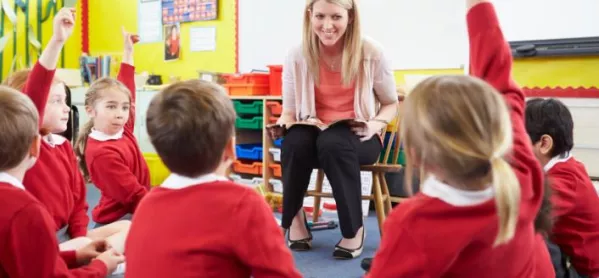I must confess that I have never watched a single episode of Star Trek. However, for everyone in my generation, as it came from a time of only three television channels, this ground-breaking sci-fi soap opera was known about, even if not avidly watched. I was fully aware of its motto - “To boldly go where no man has gone before” - and also fully aware of the paradox that when the spaceship arrived in some far-flung interstellar galaxy, more often than not the location was already populated with a sophisticated civilisation (who conveniently spoke perfect English - albeit with an American accent)
Over the past few weeks, Early Excellence has been delivering a series of briefings alongside Ofsted to address some of the issues, concerns and interpretations of Ofsted’s report Bold Beginnings. The report has been controversial: especially within the fevered realms of social media. Yet despite some of the colourful language used, and the apocalyptic prophesies of the future of children in the EYFS, the joint briefings revealed some degree of consensus and the need to understand the nature, purpose and structure of the report itself.
Much of the hostility that the report generated was focused on the specific recommendations for schools, which appeared to narrow the curriculum to purely maths, literacy and phonics. However, this was not the intention and Ofsted clarified the status of these as recommendations. Although one might challenge the apparent assumption that “everything else” is securely in place and fully understood, acknowledged and supported, this was not an attempt to narrow the curriculum in the way that it might have appeared.
Whatever the initial view of Bold Beginnings, there was general agreement that:
- Reception is a critical time in a child’s education and there is an overwhelming need to get the provision right;
- A focus on the “otherness” of Reception in school is a welcome one and will hopefully generate a meaningful debate with lasting positive consequences;
- Literacy and mathematics - while not the core purpose - are key aspects of the EYFS curriculum and need to be taught effectively and appropriately, and this entails a range of approaches;
- Effective practice in Reception consists of a “balance” or dynamic between direct teaching and the opportunity for children to consolidate their learning through their own “play” activities.
So, returning to Star Trek, according to the chronicled adventures, despite its apparent infinite nature there was always a realisation that the universe was actually full of planets that were home to English-speaking humans, and our heroes and heroines were boldly going to strangely familiar places.
To boldy go... into the Bold Beginnings report
So despite all the heat and fire, Bold Beginnings has much that could be seen as familiar. It does not and should not change good Reception practice. It is a single document, drawn from a specific evidence base, to be viewed alongside other Ofsted documents (Teaching and Play - A Balancing Act and Unseen Children - Destined for Disadvantage?) as a contribution to the debate about how to ensure Reception practice and provision is as effective and impactful as possible.
The statutory requirements remain the same and have not changed; the EYFS framework is crystal clear about the “content” of the curriculum to be taught in Reception and the process for achieving and assessing this. We retain the current Ofsted inspection framework - in particular, the definition of “teaching” within in it and its insistence on “no preferred style of teaching”. Providing that the upcoming revision to Ofsted’s framework continues to reflect this then effective Reception practice will be still be recognised. While all these remain our “legal” reference points, the findings and recommendations of Bold Beginnings should in no way alter or dilute effective and successful Reception provision and pedagogy.
The debate about effective Reception practice is not new; as a year group, it has always sat uncomfortably within the historical legacy of statutory school starting age and is often awkwardly pulled between being the end of the EYFS and the beginning of “school”.
The issue of how much direct teaching, and where this occurs, combined with how much opportunity children should ideally have to lead their own learning, is continually discussed. This debate is a well-travelled orbit of pitching expectations and aspirations for children and understanding the unique nature of ECE and its necessity for a well-rounded, rich pedagogy that enables success.
Perhaps we can “boldly go” back into this familiar debate with some starting points of consensus and a realisation that, given its rightful spotlight, an informed, mature discussion might deliver a real agreement on what a child’s experience in Reception should consist of.
Jan Dubiel is head of national and international development at Early Excellence
Want to keep up with the latest education news and opinion? Follow Tes on Twitter and like Tes on Facebook




